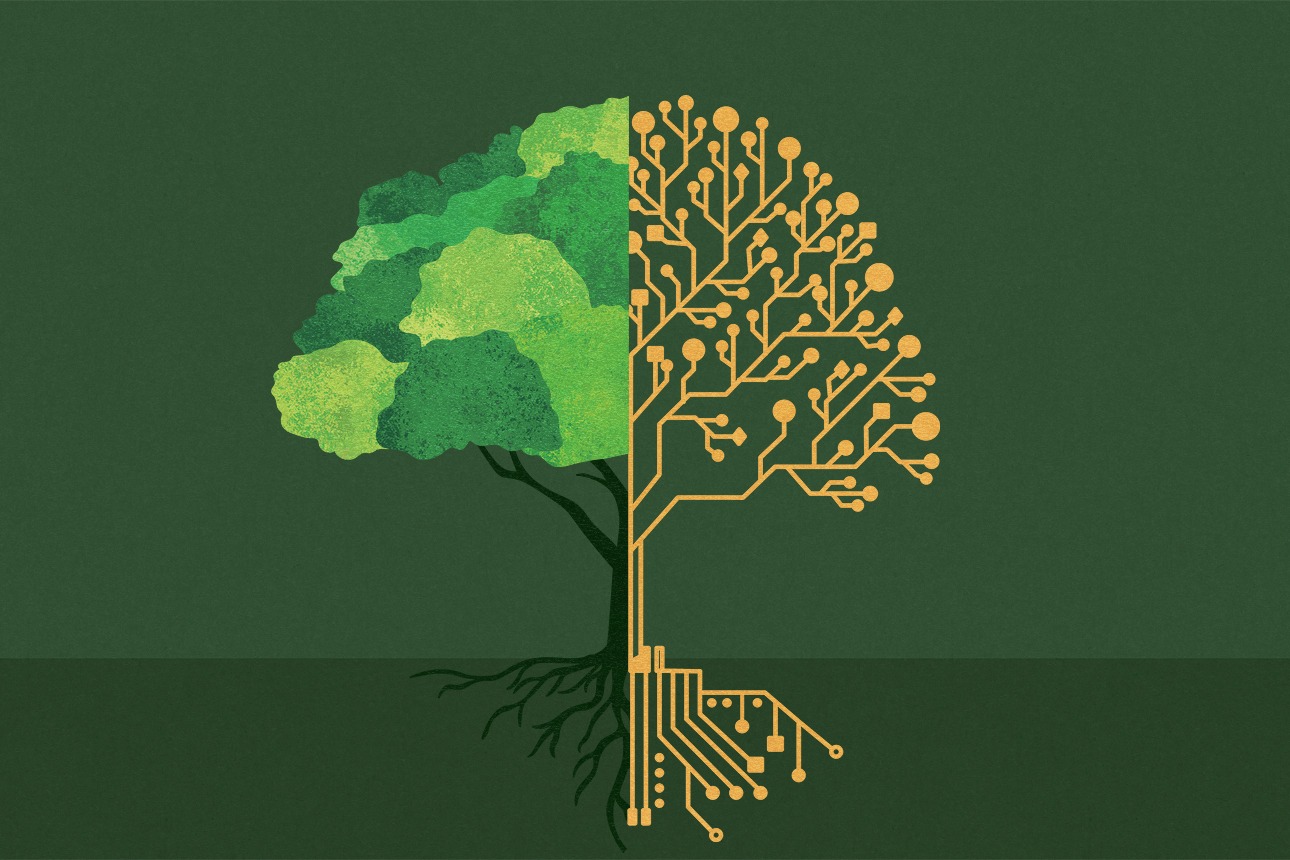
Future of Remote Work: How AI Will Make It Smarter and Easier
AI will revolutionize remote work by enhancing productivity, communication, and security. It automates routine tasks, personalizes workflows, and improves collaboration, making remote work smarter and easier. While offering many benefits, AI adoption also requires addressing privacy and training challenges to fully unlock its potential for a balanced and efficient remote work future.
✨ Raghav Jain

Introduction
Remote work has transformed the way we live and work, offering flexibility and freedom once unimaginable. However, as more people shift to working outside traditional offices, challenges such as communication gaps, productivity management, and isolation arise. This is where Artificial Intelligence (AI) steps in as a game-changer. AI technology is rapidly evolving to make remote work smarter, easier, and more efficient by automating tasks, enhancing collaboration, and personalizing workflows.
In this article, we will explore how AI is shaping the future of remote work, the technologies behind it, and practical ways it will improve our daily work lives. The future of remote work is inextricably linked with the advancements of Artificial Intelligence, which is poised to transform distributed teams into highly efficient, seamlessly collaborative, and remarkably secure operations, making remote work not just feasible but smarter, easier, and ultimately more productive than ever before. AI's capabilities, ranging from advanced automation and personalized assistance to intelligent analytics and robust cybersecurity, are addressing the traditional challenges of remote work – such as communication gaps, productivity monitoring, isolation, and security vulnerabilities – by introducing intelligent solutions that augment human capabilities rather than simply replacing them. This integration is creating a more empowered, flexible, and global workforce, fundamentally reshaping the modern workplace.
One of the most significant impacts of AI on remote work is in automating mundane and repetitive tasks, freeing up valuable human capital to focus on higher-value, creative, and strategic work. AI-powered tools can already manage email filtering and prioritization, schedule meetings across different time zones with optimal efficiency (e.g., platforms like Motion), automate data entry, generate reports for stakeholders, and send intelligent reminders. Imagine AI assistants that can automatically summarize lengthy email threads or meeting transcripts, extract key decisions and action items, and even draft initial responses or follow-up communications. This level of automation significantly reduces administrative overhead, minimizes cognitive load, and allows remote workers to dedicate more time to complex problem-solving, innovation, and client engagement, leading to increased job satisfaction and overall organizational productivity.
Enhanced communication and collaboration are another cornerstone of AI's contribution to remote work. AI-powered features are already embedded in popular virtual collaboration platforms like Zoom, Microsoft Teams, and Slack. Real-time translation services in video conferences break down language barriers, enabling truly global teams to communicate effortlessly. AI noise cancellation (e.g., Krisp) eliminates distracting background sounds, ensuring crystal-clear audio quality regardless of the remote environment. AI companions within meeting platforms can provide live captions, generate comprehensive meeting notes, summarize discussions, and even identify sentiment to gauge team engagement or potential issues. Beyond meetings, AI can analyze communication patterns to identify bottlenecks, suggest optimal communication channels, and ensure information flows seamlessly across distributed teams. Tools are emerging that can predict when a team member might be overwhelmed or disengaged based on communication patterns, allowing managers to intervene proactively. Furthermore, AI is fostering more immersive collaborative experiences through the integration of virtual reality (VR) and augmented reality (AR), enabling remote teams to simulate environments, participate in virtual whiteboarding sessions (e.g., Miro with AI features), and collaborate on projects as if they were in the same physical space.
AI also plays a pivotal role in optimizing remote work productivity and project management. AI-driven project management tools (like Asana, Trello, ClickUp, and Monday.com with AI integrations) can analyze historical data to predict project timelines, identify potential risks, and optimize resource allocation. They can intelligently prioritize tasks based on deadlines, dependencies, and individual team member workloads, ensuring that critical tasks are always at the forefront. AI can offer real-time performance tracking against KPIs without resorting to intrusive micromanagement, providing managers with insights into team progress and potential bottlenecks. For individual remote workers, AI-powered personal assistants can help manage daily schedules, set reminders, and provide intelligent suggestions for how to best allocate time, promoting better work-life balance by preventing burnout. Some AI tools can even analyze an individual's work patterns to suggest optimal break times or identify periods of peak focus.
Strengthening cybersecurity is an immense benefit AI brings to the remote work landscape. With employees accessing company resources from diverse, often less secure home networks and personal devices, the attack surface for cyber threats has expanded significantly. AI-powered cybersecurity systems offer proactive, real-time threat detection and adaptive defense mechanisms. They continuously monitor network traffic, user behavior, and system logs to identify anomalies, flag suspicious activities (like unusual login locations or data exfiltration attempts), and detect novel malware that traditional signature-based systems might miss. AI-driven endpoint protection, robust authentication methods (like behavioral biometrics), and automated incident response systems can isolate compromised devices, contain threats instantly, and even apply patches autonomously. This continuous learning capability of AI means that security measures evolve and strengthen over time, adapting to new cybercriminal tactics and making remote work environments significantly more resilient against the ever-increasing sophistication of cyberattacks.
Beyond these operational improvements, AI contributes to a more inclusive and personalized remote work experience. AI-driven platforms can offer tailored learning and development opportunities based on an employee's performance data, career goals, and identified skill gaps. Virtual AI trainers and assistants can provide personalized coaching and feedback, making continuous learning more accessible and effective for remote employees regardless of their location. AI can also facilitate virtual team building activities and icebreakers, helping to bridge the social distance inherent in remote work and foster a stronger sense of camaraderie and belonging. For HR and management, AI can analyze employee sentiment from communication data, identify potential signs of disengagement or dissatisfaction, and help create a more supportive and empathetic remote work culture. This focus on individual well-being and personalized growth directly addresses concerns about isolation and lack of career progression often associated with remote work, making it a more attractive and sustainable option for employees.
However, the future of remote work with AI is not without its challenges and ethical considerations. Concerns around privacy and surveillance arise as AI tools monitor productivity and communication patterns. Companies must establish clear policies and ensure transparency regarding data collection and usage to build trust. The potential for algorithmic bias in AI tools, if not properly mitigated, could inadvertently lead to unfair treatment or discrimination in performance evaluations or task assignments. The digital divide could also widen, as access to high-speed internet and necessary AI-powered tools might not be universally available, creating disparities in remote work opportunities. Furthermore, the increasing reliance on AI might lead to a skills gap, where certain routine tasks become automated, requiring workers to upskill in areas like critical thinking, creativity, and complex problem-solving – skills that AI currently cannot replicate. Thus, while AI promises to make remote work smarter and easier, its successful implementation will require careful ethical consideration, robust data governance, and a focus on human-AI collaboration to maximize benefits and mitigate potential pitfalls.
In summary, the future of remote work is being fundamentally reshaped by Artificial Intelligence, transforming it from a mere necessity into an intelligent, efficient, and empowered mode of operation. AI will make remote work smarter and easier by automating mundane tasks, vastly enhancing communication and collaboration through features like real-time translation and intelligent meeting summaries, optimizing project management with predictive analytics and intelligent task prioritization, and bolstering cybersecurity with adaptive threat detection and automated responses. Beyond operational efficiencies, AI will foster a more personalized and inclusive remote experience by offering tailored learning paths and insights into employee well-being. While ethical considerations surrounding privacy and bias must be carefully navigated, the overarching trajectory indicates that AI will serve as a powerful enabler, augmenting human capabilities, streamlining workflows, and ultimately unlocking unprecedented levels of productivity, flexibility, and global connectivity for the workforce of tomorrow.
Understanding Remote Work Challenges
Before we dive into AI’s impact, it’s important to understand the common challenges faced by remote workers:
- Communication barriers due to lack of face-to-face interaction
- Distractions and time management issues at home
- Difficulty in collaboration across time zones
- Overwork and burnout without clear work-life boundaries
- Maintaining security and privacy on digital platforms
Overcoming these hurdles is essential for remote work to remain productive and sustainable.
How AI Enhances Remote Work
AI technology is designed to tackle many remote work challenges by improving efficiency and engagement.
1. Smarter Communication Tools
AI-powered chatbots and virtual assistants can filter messages, prioritize tasks, and even summarize long conversations. They help reduce information overload and ensure important updates are not missed.
2. Automated Scheduling and Task Management
AI tools can analyze calendars, suggest optimal meeting times across time zones, and automate routine task assignments, freeing employees from administrative burdens.
3. Enhanced Collaboration Platforms
AI integrates with project management software to track progress, predict bottlenecks, and offer insights that improve teamwork even when members are miles apart.
4. Personalized Workflows
By learning individual work habits and preferences, AI customizes workflows to maximize productivity, such as recommending breaks or adjusting deadlines based on workload.
5. Intelligent Time Tracking and Focus Support
AI apps can monitor how time is spent, provide alerts during distractions, and suggest focus techniques, helping remote workers maintain discipline and balance.
6. Advanced Security Measures
AI-driven security protects sensitive company data by detecting unusual activities, preventing cyberattacks, and ensuring privacy on digital networks.
The Role of AI Technologies Behind Remote Work
Several AI innovations are driving these improvements:
- Natural Language Processing (NLP): Enables smart chatbots and real-time language translation for global teams.
- Machine Learning: Learns user behavior to personalize tools and automate repetitive tasks.
- Computer Vision: Assists in virtual meetings by analyzing facial expressions and engagement.
- Predictive Analytics: Forecasts project timelines and helps managers make data-driven decisions.
- Robotic Process Automation (RPA): Handles mundane tasks like data entry, leaving more time for creativity.
AI + Remote Work: Benefits for Employees and Employers
1. Increased Productivity
Automation reduces manual work and distractions, allowing employees to focus on high-value tasks.
2. Better Work-Life Balance
AI encourages healthy work habits and helps set boundaries to prevent burnout.
3. Inclusive Global Workforce
Language translation and asynchronous collaboration tools enable diverse teams to work seamlessly.
4. Improved Employee Engagement
Personalized feedback and task management help employees stay motivated and aligned with company goals.
5. Cost Efficiency
Employers save on office space, travel, and administrative costs while improving workflow efficiency.
Daily AI-Driven Practices for Smarter Remote Work
Morning Routine
- Use AI-powered virtual assistants to organize your day and prioritize tasks.
- Leverage smart calendars for efficient scheduling.
During Work
- Utilize AI focus apps to minimize distractions.
- Collaborate through AI-enhanced platforms with real-time suggestions.
End of Day
- Review AI-generated summaries of your accomplishments and pending tasks.
- Set AI reminders for breaks and work cut-offs to maintain balance.
Common Concerns and How AI Addresses Them
Privacy and Data Security
While digital work increases exposure, AI’s security protocols detect threats early and protect sensitive information.
Job Displacement Fear
AI automates repetitive tasks, but human creativity and emotional intelligence remain irreplaceable, shifting jobs toward higher-skilled roles.
Overdependence on Technology
AI tools are designed to assist, not replace human decision-making, maintaining a healthy balance.
Myths About AI in Remote Work: Busted!
“AI will replace human workers.”
→ False. AI handles repetitive tasks, empowering humans to focus on creativity.
“AI tools are too complex for daily use.”
→ Wrong. User-friendly AI applications are designed for easy integration.
“Remote work becomes isolated with AI.”
→ Not true. AI enhances collaboration and communication, reducing feelings of isolation.
Sample AI Tools and Tips for Remote Work
Tools
- Virtual assistants: Microsoft Cortana, Google Assistant
- Project management: Trello with AI plugins, Monday.com
- Time tracking: RescueTime, Focus@Will
- Communication: Slack with AI summarizers, Zoom’s AI features
Tips
- Experiment with one AI tool at a time.
- Customize notifications to avoid overload.
- Keep security software updated.
- Balance screen time with offline breaks.
Conclusion
The future of remote work is inseparable from the rise of Artificial Intelligence. By making communication smarter, automating routine tasks, and personalizing workflows, AI transforms remote work into an easier, more productive, and enjoyable experience. Both employees and employers stand to gain from embracing these technologies responsibly.
To thrive in this new era, start exploring AI tools today and adapt your remote work habits to benefit from smarter solutions. The smarter your work, the easier your life.
Q&A Section
Q1: What is the future of remote work in the context of AI?
Ans: The future of remote work will be highly enhanced by AI, making tasks more efficient, communication seamless, and workflows smarter through automation and data insights.
Q2: How can AI improve communication in remote teams?
Ans: AI-powered tools like real-time translation and smart scheduling make communication across time zones easier and more effective.
Q3: What role does AI play in task automation for remote workers?
Ans: AI automates repetitive tasks such as data entry, scheduling, and report generation, allowing remote workers to focus on higher-value activities.
Q4: How will AI help in monitoring productivity without being intrusive?
Ans: AI uses data analytics to provide insights on productivity patterns without constant surveillance, helping managers support remote teams better.
Q5: Can AI personalize remote work experiences? How?
Ans: Yes, AI personalizes workflows by adapting tools and recommendations based on individual work habits and preferences.
Q6: How does AI enhance virtual collaboration?
Ans: AI-powered collaboration tools offer smart document editing, version control, and idea generation, making teamwork smoother even from a distance.
Q7: What impact will AI have on remote work security?
Ans: AI improves cybersecurity by detecting unusual activity and preventing data breaches, ensuring safer remote work environments.
Q8: How will AI influence remote hiring and onboarding?
Ans: AI streamlines recruitment through automated candidate screening and personalized onboarding processes for remote employees.
Q9: What challenges might arise from increased AI use in remote work?
Ans: Challenges include data privacy concerns, over-reliance on automation, and the need for upskilling workers to use AI tools effectively.
Q10: How will AI shape the work-life balance of remote workers?
Ans: AI helps manage workloads and schedules smarter, promoting better work-life balance by reducing burnout and optimizing work hours.
Similar Articles
Find more relatable content in similar Articles

The Hidden Energy Cost of Stre..
As digital streaming and onlin.. Read More

The Rise of Digital Twins: You..
Digital twins are transforming.. Read More

3D-Printed Organs: Are We Clos..
3D-printed organs are at the f.. Read More

Virtual Reality Therapy: Heali..
Virtual Reality Therapy (VRT) .. Read More
Explore Other Categories
Explore many different categories of articles ranging from Gadgets to Security
Smart Devices, Gear & Innovations
Discover in-depth reviews, hands-on experiences, and expert insights on the newest gadgets—from smartphones to smartwatches, headphones, wearables, and everything in between. Stay ahead with the latest in tech gear
Apps That Power Your World
Explore essential mobile and desktop applications across all platforms. From productivity boosters to creative tools, we cover updates, recommendations, and how-tos to make your digital life easier and more efficient.
Tomorrow's Technology, Today's Insights
Dive into the world of emerging technologies, AI breakthroughs, space tech, robotics, and innovations shaping the future. Stay informed on what's next in the evolution of science and technology.
Protecting You in a Digital Age
Learn how to secure your data, protect your privacy, and understand the latest in online threats. We break down complex cybersecurity topics into practical advice for everyday users and professionals alike.
© 2025 Copyrights by rTechnology. All Rights Reserved.